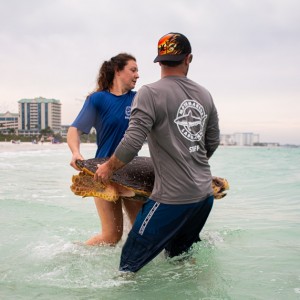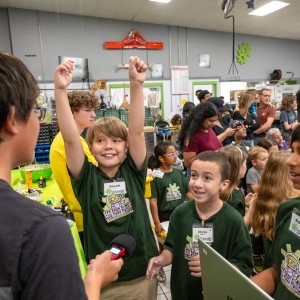Saving Staghorn
Todays News
SRQ DAILY FRESHLY SQUEEZED CONTENT EVERY MORNING
TUESDAY JAN 1, 2019 |
BY LISL LIANG
Photo of staghorn coral planted by Mote Marine Laboratory, courtesy of Conor Goulding
Of all the marine ecosystems on the planet, Florida inhabits the only living coral barrier reef in the continental United States—the Florida Reef Tract lies just a few miles seaward of the Florida Keys. It is also the third largest shallow-water coral reef system in the world, supporting over 70,000 local jobs, drawing $6.3 billion to Florida’s economy and serving as the primary front line of coastal resiliency defense from major storms. As of recent declaration, Mote Marine Laboratory and partners set to restore 70,000 coral “seeds” across 130 acres of depleted Florida reefs over the next three years, prioritizing coral genetic varieties resilient to disease and climate change impacts.
Thanks to a grant of nearly $1.5 million by the National Fish & Wildlife Foundation (NFWF), National Oceanic and Atmospheric Administration (NOAA) and partners, Mote plans to implement a strategic Florida Keys Coral Disease Response & Restoration Initiative, building an arsenal of powerful attacks against the widespread threats facing coral reefs. These strategies aim to restore reef-building brain, boulder and star corals, as well as branching corals such as threatened staghorn and elkhorn species, whose populations have been severely decimated over decades—particularly due to warming oceans and unprecedented outbreaks of tissue-loss and coral disease spanning more than 96,000 acres across the Gulf floor. Now, Mote scientists are taking a closer look at which genetic varieties of coral are best suited for planting into an increasingly hostile environment.
“With imminent threats to the staghorn coral, it is now the focus for restoration efforts throughout much of the Florida Reef Tract,” says Dr. Erinn Muller, Program Manager and Science Director of Mote’s Elizabeth Moore International Center for Coral Reef Research and Restoration on Summerland Key, Florida. “Now, scientists are recognizing that some staghorn coral genotypes are more resilient to threats than others. However, there could be tradeoffs associated with these resilient traits, such as heat-tolerant corals being highly susceptible to disease infection.”
So far, the Mote-led initiative has already rehabilitated some 43,000 degraded and declining corals, planted tens of thousands of nursery-raised staghorn colonies onto depleted reefs, through a process called "coral gardening", and have been monitoring their progress, leading controlled lab studies and investigating how and why some of these marine invertebrates resist threats. In order to restore these self-sustaining staghorn reefs, and their essential protection to Florida's coastline, as well as valuable fisheries habitat, it is crucial that restoration efforts focus on maintaining high genetic diversity to help keep these corals alive in the heat rising climate.
“In the Florida Keys, coral reefs are our treasure, part of our culture and our shield—that was abundantly clear during Hurricane Irma, a tragedy that would have been even worse if our reefs had not broken up the intensity of wave action threatening our coast,” said Mote President & CEO Dr. Michael P. Crosby. “Mote scientists and our partners are working to restore that critical shield so it can continue defending our communities and enriching their quality of life."
Join Mote at its next Coffee with a Scientist seminar, January 9, with Dr. Vincent Lovko, Manager of Mote’s Phytoplankton Ecology Program. Enjoy coffee, pastries and a research presentation in Mote’s Boca Grande Outreach Office, 9am.
Photo of staghorn coral planted by Mote Marine Laboratory, courtesy of Conor Goulding
« View The Tuesday Jan 1, 2019 SRQ Daily Edition
« Back To SRQ Daily Archive












